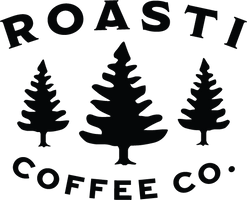Guatemala Juan Rodriguez
Notes: Milk Chocolate, Caramel, Cranberry
Origin: San Miguel, Mataquescuintla, Jalapa, Guatemala
Producer: Juan Rodriguez
Farm: San Antonio
Process: Washed
Altitude: 1750 MASL
Variety: Pache San Ramon
We are stoked to be able to purchase coffee from another producer who is part of the Cafe Colis Resistencia Co-op.
About the Co-op:
Cafe Colis Resistencia is the name created by Alex Reynoso to identify coffee producing members of the Indigenous Xinka community around Mataquescuintla who are interested in developing an international market for their coffee, and therefore finally receiving fair prices for their work. The name pays homage to their ongoing peaceful resistance to the Escobal silver mine, built without their consent and managed by the Canadian-based extractive firm, Pan-American Silver.
While theoretically the price of cherry is decided in relation to the New York Stock Exchange coffee commodity price, really anything goes for these buyers. As producers have little to no option, they simply sell to whoever they can, and accept whatever price is offered. In 2022, we saw massive increases in price as the C market boomed. Despite that, we still set prices that were above what was locally available and kept those same prices as a base for this year. That means that any grower, regardless of their quality, received 1750 Quetzal / quintal of parchment coffee, and those who invested in their processing set ups received 1850.
About Juan Rodriguez:
Juan Rodriguez is the nephew of Miguel Rodriguez, one of the first producers Semilla purchased from and a major leader in the peaceful Xinca resistance against the Escobal silver mine. Juan’s farm - San Antonio - is just behind one of Miguel’s and this land was operated by his grandparents just as Miguel’s was.
As Juan explains, he is a coffee grower as his family has always been, for the purpose of maintaining a living for his family. In years past, prior to the 21st century, coffee growing could garner one a reasonable income even if selling in cherry. However, as the price of coffee has dropped around the world in the last twenty years, coffee growing has become more and more difficult for people like Juan.
For him, like many in the group, he has relied on intermediaries to make his money. Whencherries are picked, they are typically sold the same day by buyers who roll through San Miguel and other townships around Mataquescuintla. These buyers typically work for large landowners who have access to the international market, or
They work for major multinationals like Nescafe and Starbucks. Some of these buyers are Xinca themselves, and they seek to do better by their local community. However, for the most part, these are predatory relationships in which wealthier people and corporations with access to an international market are in good standing with Anacafe (the national coffee organism which oversees export licensing and quotas). We’ll go into more detail on this in the next section. For Juan himself, this is only his second year selling internationally. In order to do so, he relies on the local wet mill, La Concepción, to process his cherries to parchment and to store them until ready for export. While this service has been helpful for the group in their first steps exporting internationally, many problems emerged this last harvest that have really incentivized the group to focus on their own processing, drying, and storage.
First, La Concepcion raised the daily minimum for cherries this year, making it very hard for the smaller producers to avail on their service. Juan did not have this problem, thankfully, but when the time came for him to pull his parchment from the bodega, he discovered that what had been rendered from cherry to parchment was much lower than the average. Of course, this meant he spent more for processing and made less money from his parchment. This is a good example of how a small producer can lose out simply because they do not have access to their own product at all times.
As with all of the coffees Semilla works with in Mataquescuintla, Juan is an active member of the peaceful resistance against the Escobal silver mine. Like so many others, he partakes in this resistance as a true land defender - explaining that he does so “to fight for the common good of our people, and in defense of our land against mining companies that destroy them and contaminate the environment.”

